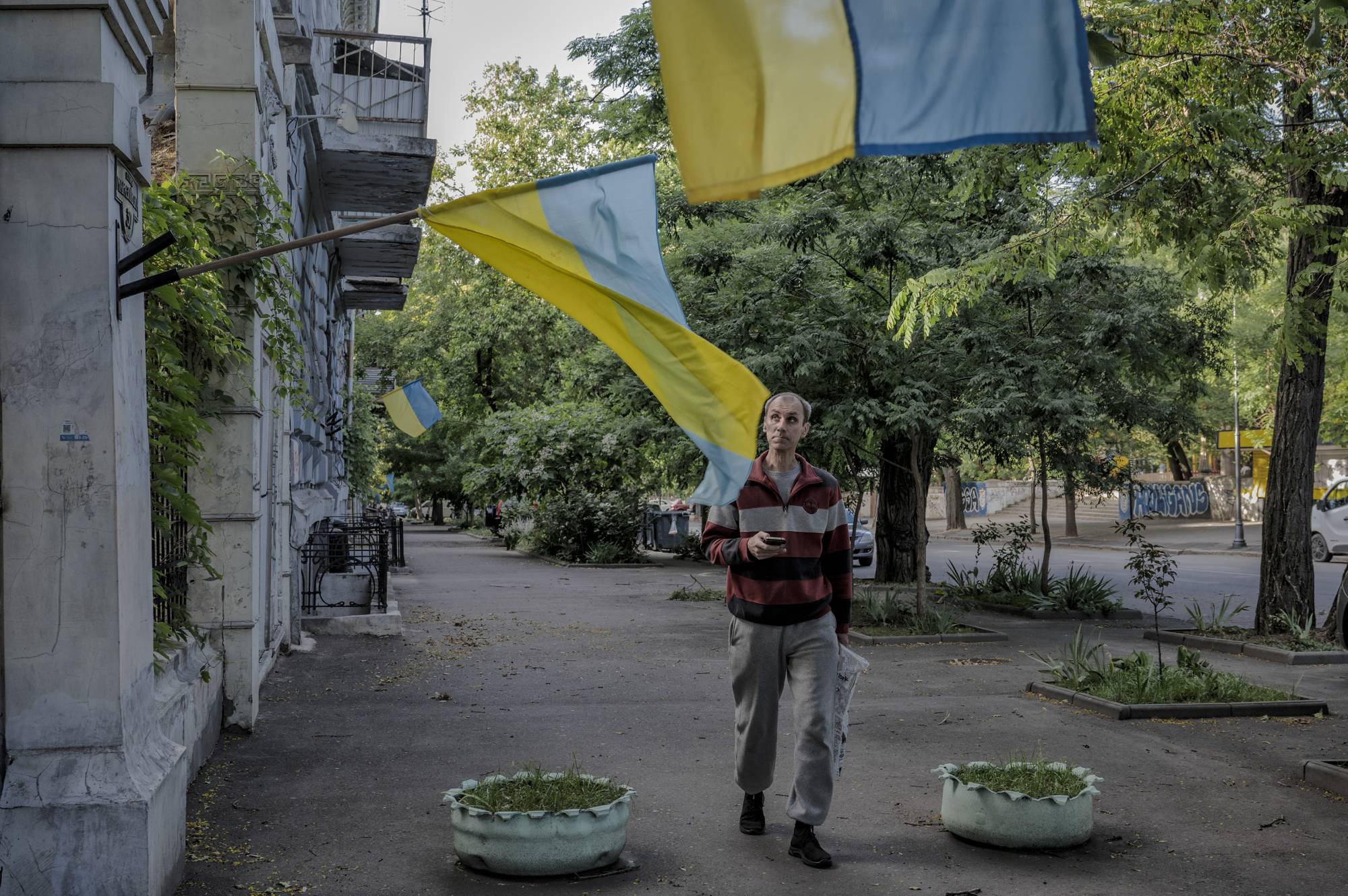The Odesa Fine Arts Museum, a colonnaded early-19th-century palace, stands almost empty. Early in Russia’s war on Ukraine, its staff removed more than 12,000 works for safe keeping. One large portrait remained, depicting Catherine the Great, the Russian empress and founder of Odesa, as a just and victorious goddess.
Seen from below in Dmitry Levitzky’s painting, the empress is a towering figure in a pale gown with a golden train. The ships behind her symbolize Russia’s victory over the Ottoman Turks in 1792. "She’s textbook Russian imperial propaganda,” said Gera Grudev, a curator. "The painting’s too large to move, and besides, leaving it shows the Russian occupiers we don’t care.”
The decision to let Catherine’s portrait hang in isolation in the first room of the shuttered museum reflects a sly Odesan bravura: an empress left to contemplate how the brutality of Vladimir Putin, the Russian president who likens himself to a latter-day czar, has alienated the largely Russian-speaking population of this Black Sea port, established by her in 1794 as Moscow’s long-coveted conduit from the steppe to the Mediterranean.



















With your current subscription plan you can comment on stories. However, before writing your first comment, please create a display name in the Profile section of your subscriber account page.